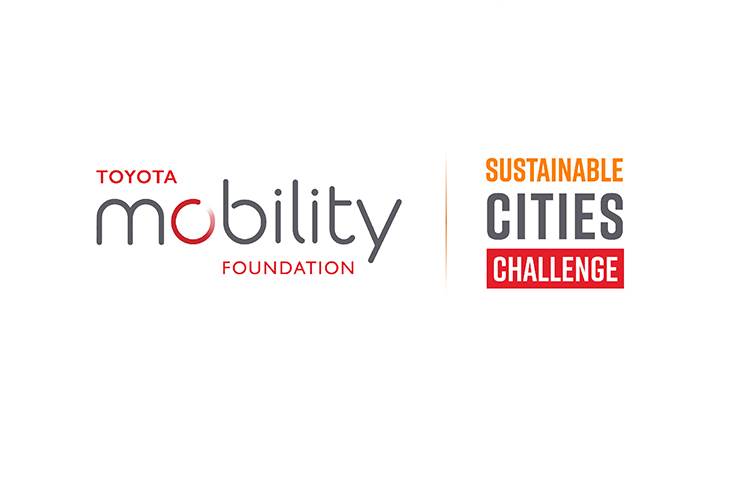Varanasi, Detroit, and Venice have been selected to host innovation challenges as part of the Toyota Mobility Foundation’s Sustainable Cities Challenge. The goal of the USD 9 million global initiative is to help cities accelerate toward sustainable mobility, fostering healthier and safer urban environments while enhancing people’s ability to commute, work, study, and access services. The cities, located in the United States, India, and Italy, were chosen from a shortlist of 10 cities announced in November 2023.
Over 150 cities from 46 countries entered the Challenge after the call to cities was first launched in June 2023. The list was then narrowed to 10 and now to 3 cities. The City Challenges will be launched for innovator entry over the next two months, inviting global innovators to access a share of USD 3 million in funding per city to demonstrate their solutions.
Varanasi, Uttar Pradesh, India
Launching in late June 2024: Varanasi is located on the banks of the Ganges River in northern India and is the “spiritual capital” of India. A revered pilgrimage destination, the city sees visitors from across India and abroad. This influx of visitors, while vital to strengthening the city’s tapestry of faith and culture, has led to increased concerns about safety and crowding. The Varanasi City Challenge aims to generate innovative, data-driven solutions incorporating elements of technology and design that make crowded areas of Varanasi’s old city (Kashi) safer and more accessible for religious tourists and local residents, including vulnerable members of the population.
Akshat Verma, IAS, Municipal Commissioner/Chief Executive Officer, Varanasi Municipal Corporation/Varanasi Smart City, said, “Participating in the Toyota Mobility Foundation’s Sustainable Cities Challenge presents an exciting prospect for Varanasi. This initiative offers us a valuable chance to explore technical and design-related avenues for enhancing mobility within our city, benefiting both our residents and the growing influx of tourists. By collaborating with innovative minds, we aim to bolster Varanasi’s reputation as a premier global tourist destination. We eagerly anticipate the opportunity to work closely with TMF, their partners, and experts to achieve this goal.”
Detroit, Michigan, USA
Launching on May 29, 2024: Detroit, known worldwide as the ‘Motor City,’ is working to show the world that sustainable mobility is part of what makes this ‘Motor’ move by seeking innovators who can help the city deploy clean and cost-effective mobility solutions as part of this transition. The Challenge is focused on Eastern Market, the nation’s largest food production and distribution center. The city wants to explore solutions that help preserve the health and well-being of the Eastern Market community as it carries through with expansion plans. More specifically, the Detroit City Challenge will seek solutions that reduce fossil fuel use and cut costs of freight operations in the Eastern Market by increasing efficiencies and unlocking opportunities for clean freight technologies.
Tim Slusser, Chief of the City of Detroit’s Office of Mobility Innovation, said, “We’re excited and honored to be one of just three cities in the world selected for the Sustainable Cities Challenge. As the only city chosen in the western hemisphere, Detroit represents over one hundred years of world-renowned innovations in transportation. As Detroit continues to grow, we want to learn how to address the ways that freight and industry can be more sustainable, while also supporting the economy in thriving areas such as our Eastern Market – especially in very cold conditions. We look forward to building out the groundwork for this project and what the next stage brings!”
Venice, Veneto, Italy
Launching on June 11, 2024: Venice is often pictured solely as a historic city famous for its intricate network of canals. Nevertheless, the majority of the population lives and works in the mainland suburbs such as Mestre, Maghera, and other motorized islands, which serve as a crucial transportation hub connecting Venice to the mainland and beyond. With a mobility landscape that is truly multi-modal, including land and water transport, the city has invested significantly in sustainable mobility infrastructure and services. In the Venice City Challenge, the city seeks innovative solutions that shift behavior, encouraging increased use and adoption of existing sustainable transport modes.
Morris Ceron, Director General at the City of Venice, said, “I wish to thank the Toyota Mobility Foundation for choosing Venice: it is a recognition of the path we have taken to make the city’s mobility increasingly sustainable, in a complex territory where water and land are integrated, with a plurality of different means of transport. Participating in this international-level Challenge will allow us to enhance the actions already put in place, such as the significant extension of the bike lane network, implementing hydrogen and electric local public transport, introducing bike-sharing services, setting up the “smart control” for more orderly flow management, as well as offering new stimuli on how citizens, with their own behavior, can be protagonists of this change.”
The Challenge
The three City Challenges will focus on different areas of sustainable mobility relevant to their specific context, spanning the expansion of access to safe, affordable, and inclusive modes of transportation. Potential solutions could harness the power of data to create connected and resilient mobility ecosystems or reduce environmental impact through low-carbon and renewable solutions.
The three cities have been working with Toyota Mobility Foundation alongside Challenge Works and World Resources Institute (WRI) to finalize their Challenges. They are focusing on areas of their respective mobility barriers that could be best addressed through open innovation. They have been consulting with local organizations and wider stakeholders to inform the design of their respective Challenges.
Innovators from across the globe with solutions ready to be tested are invited to respond to the specific issues of each city as each City Challenge launches over the next two months. The innovative solutions that best meet the needs of the city will be selected to be supported. Together, the cities and selected innovators will test, further develop, and deploy solutions using real-world data, with access to transportation departments and infrastructure.
The Sustainable Cities Challenge is funded by the Toyota Mobility Foundation and has been designed in partnership with Challenge Works and World Resources Institute to bring cities and innovators together to develop sustainable, inclusive, data-driven mobility solutions fit for the future.
Pras Ganesh, Executive Program Director, Toyota Mobility Foundation, said, “As the Toyota Mobility Foundation, we are passionate about the freedom of mobility, and the opportunities that such mobility can unlock for individuals and communities. With like-minded partners such as World Resources Institute and Challenge Works, we seek out innovative solutions to overcome the barriers that hinder these opportunities. The Sustainable Cities Challenge, our global challenge that matches visionary cities and the most creative innovators, will now focus on the 3 incredibly dynamic cities of Varanasi, Venice, and Detroit. We will now seek out the most innovative ideas that solve these cities’ most pressing mobility issues, and ensure that identified ideas can be scaled, replicated, and amplified globally”.
Kathy Nothstine, Head of Future Cities at Challenge Works, shared, “This Challenge will help these cities stimulate creative problem-solving to address highly complex barriers to sustainable mobility. We are thrilled to be working with Detroit, Varanasi and Venice to create local Challenges that will invite brilliant innovators around the world to create lasting impact.”
Ben Welle, Director of Integrated Transport and Innovation at WRI Ross Center for Sustainable Cities, said, “Detroit, Varanasi and Venice all have distinct mobility barriers, but they also share the same circumstances and concerns with many other cities around the world. Their involvement in the Sustainable Cities Challenge will allow them to find an area they want to address and ask some of the world’s best innovators to help them tackle it. WRI is proud to be helping the cities in this process.”










